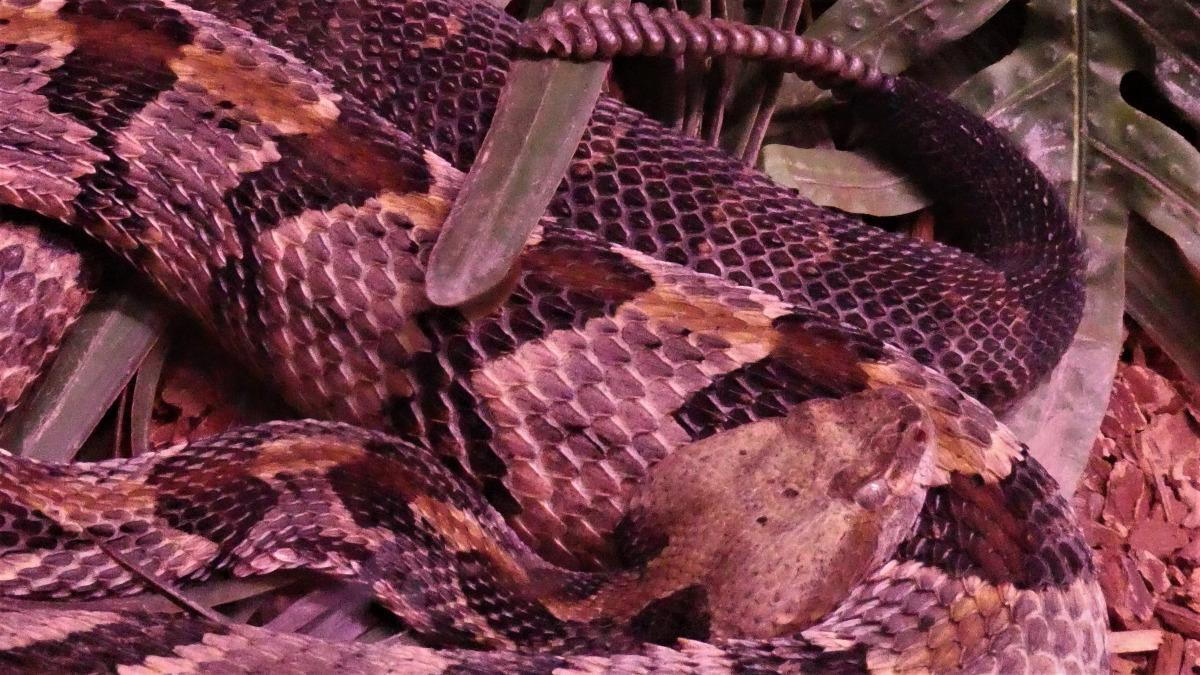Snake Bites in Dogs and Cats

- posted: Sep. 03, 2023
Snake Bites
Venomous snakes are uncommon in Pennsylvania, but both timber rattlesnakes and copperheads can be found in York County. What should you do if your pet is bitten by a snake? Let’s find out!
First, if you see the snake and have a phone or camera handy, try to snap a photo to aid identification. Remember, the vast majority of snakes in our area are non-venomous, but a bite from a non-venomous snake may still cause pain or become infected. It’s prudent to seek veterinary care regardless of the type of snake that has bitten your pet, but non-venomous bites are not life threatening.
If your pet is bitten and you are fairly certain that the bite is from a rattlesnake or copperhead (or if you don’t know what type of snake it was, err on the side of caution and have your pet examined), keep your pet calm and quiet and seek immediate veterinary attention even if he or she seems OK. It may take as little as thirty minutes or as much as 24 hours for symptoms to arise. Symptoms often include swelling at the site of the bite (typically on the muzzle or face of dogs and the paws or front legs in cats), dilated pupils, shaking or muscle twitching, weakness or collapse, vomiting or neurologic symptoms. Double puncture wounds may also be visible though fang marks are often small and difficult to spot. Small dogs and short nosed (brachycephalic) breeds may be more severely affected by snake bites. Cats seems to be relatively resistant to snake venom, but may still suffer symptoms if bitten, so have your cat checked to be sure he or she does not develop serious illness.
DO NOT attempt to treat your pet by applying a tourniquet, by trying to suction out the venom or by applying heat, ice or any topical medications. These methods do not work, may cause more tissue damage, and may waste valuable time in getting your pet to a veterinary clinic. Do keep your pet calm and quiet as increased activity can speed circulation of the venom.
It may help to be proactive if you are camping or traveling somewhere remote with your pet to do research before traveling to have an idea where the closest veterinary office or emergency center is located. This is not only good to know if case of snake bite, but may come in handy with any potential emergency.
What will your veterinarian do for a snake bite? Supportive care with intravenous fluids, antibiotics and pain management are the mainstay of treatment. Antivenom may be recommended in severe cases, but it is not always readily available as most veterinary hospitals do not stock it due to infrequent use and expense. Pets may also experience and allergic reaction to the antivenom. Thankfully, most dogs and cats do recover from minor snake bites with general supportive care.
Snake bites are uncommon, but do be aware of the possibility of an encounter with a rattlesnake or copperhead in Pennsylvania, especially if hiking or camping with your dog. If your pet is bitten by an unknown or venomous snake, do not try to treat him yourself. Seek immediate veterinary care for the best outcome.
This blog brought to you by the Patton Veterinary Hospital, serving Red Lion, York and the surrounding communities.
https://moderndogmagazine.com/articles/what-do-if-your-dog-bitten-snake/133294
Location
Patton Veterinary Hospital
425 E Broadway
Red Lion, PA 17356
